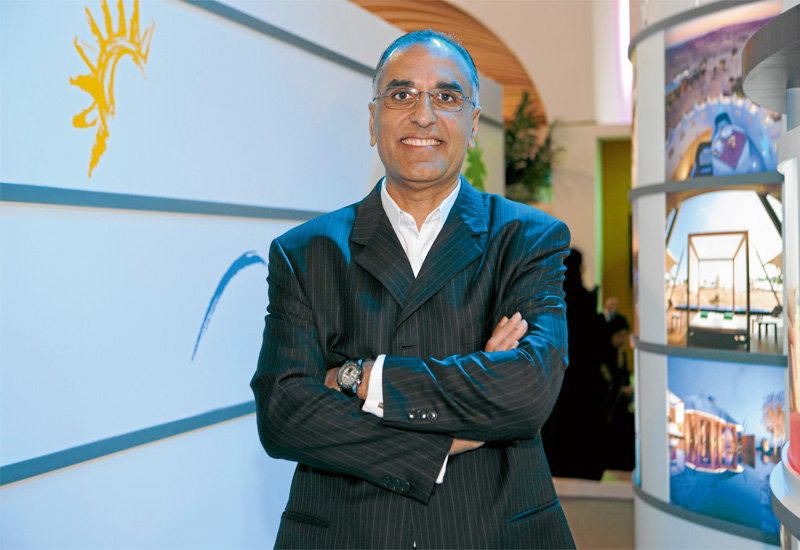 Abid Butt served as area general manager for flagship resort Banyan Tree Phuket more than 10 years ago.
Abid Butt served as area general manager for flagship resort Banyan Tree Phuket more than 10 years ago.
Banyan Tree CEO Abid Butt discusses his drive to grow the group’s portfolio, the need for the industry to adapt to a new talent base and his secret passions for law, percussion and diving
Self-confessed “hotel junkie” Abid Butt is 18 months into his role as chief executive officer of Banyan Tree Hotels and Resorts (BTHR), a company he first joined more than 10 years ago.
Back then, he managed the flagship Banyan Tree Phuket in Thailand and became the first vice president of operations. His career then took him to America, where he had previously studied and started his career, as vice president of asset management for Host Hotels & Resorts.

| Advertisement |
But the lure of Banyan Tree proved too much and now that Butt is in the driving seat, he has bold ambitions to grow the organisation, find future leaders and develop unique experiences for guests over the next five to eight years.
“That’s what in front of me so that’s what I’m focused on,” he says. “I’m told I’m a very driven individual. That keeps me going, I’m very results-oriented. I like to measure progress, I like to measure when things are getting done and not getting done.”
Expansion is one of the areas progressing rapidly since Butt’s appointment. When we speak, he’s just returned from opening the group’s first hot spring resort in Chongqing, China, and is set to travel through Europe in August, focusing on gateway cities, and embark on a major trip through south, central and north America in September, scouting out potential opportunities and meeting investors.
Banyan Tree Group also invests in some projects itself via its Banyan Tree Capital real estate fund management arm, currently committed in the Banyan Tree Indochina Hospitality Fund and Banyan Tree China Hospitality fund.
“My colleagues with Banyan Tree Capital are fairly busy quite candidly managing those two funds because we look for a project before we go out and raise the funds, unlike ‘line pool’ type of funds — that’s clearly one of the vehicles that we’ve used to grow and might continue to use that depending on location, and what partners might be available, so that will continue to be an option,” reveals Butt.
There are also further projects in the Middle East on the horizon, following the opening of Banyan Tree Al Wadi and Banyan Tree Beach Resort in Ras Al Khaimah, with talks underway in Bahrain, Saudi Arabia and Abu Dhabi.
A complex comprising the luxury Banyan Tree brand and upper upscale Angsana is already under construction in Sifah, Oman. The region appeals, says Butt, because of its strong culture.
“Our brand fits into the cultural elements and the location that we look after and really delivers an experience because truly we are not about luxury positioning, we are about experiential positioning.
“We certainly would like to have other hotels in the emirates; between Abu Dhabi and Dubai, there are several places that one of our brands could fit perfectly. Places like Qatar or even Lebanon and Egypt when things stabilise; we would love to have our hotels there because culturally all this area is very strong and it will help us deliver a fabulous experience.
“That’s who we are; every location we go in to operate we have to bring in the sense of the place. That’s the filters that we put on new projects — we make sure we can actually deliver a true holistic experience.
“Hopefully by the end of the year, seeing how my trips go and what comes out of it, next time you and I speak maybe we’ll be able to talk specifically about a few more projects,” he says positively.
However, wherever Banyan Tree grows across the world, Butt is keen to “retain the Asian heritage of our organisation” and the “fabulous” Asian hospitality and core values.
“We wouldn’t want to lose that in any way, shape or form,” he asserts.
Article continues on next page ...








 Search our database of more than 2,700 industry companies
Search our database of more than 2,700 industry companies









